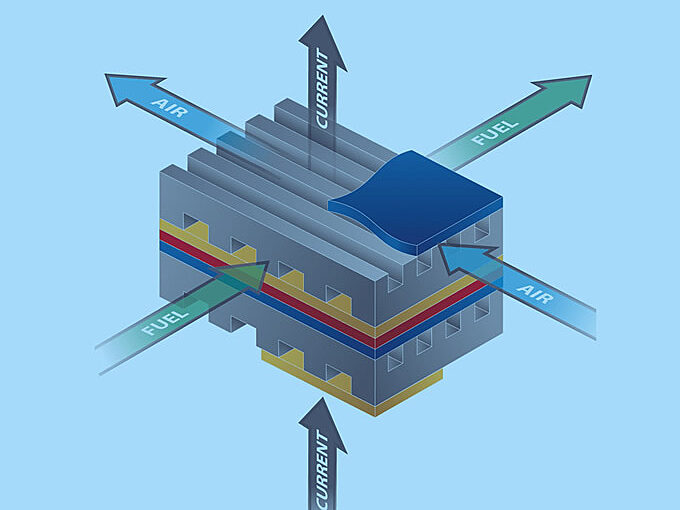Fuel Cells & Electrolysers - Consultancy
Energy storage solutions are required in sizes ranging from personal use to commercial storage. All types of energy storage devices include multiple materials, complex chemistries, surface and interface reactions, efficiency, and cost-out challenges.
Several promising technologies are currently in development that could have huge impacts on the future of fuel cells. The adoption of solid oxide fuel cells (SOFCs), applications of novel processing techniques such as Flash Sintering, or other more general ceramics processing improvements may lower costs and enhance material properties, shortening product development time to create superior products by adjusting the critical parameters required to both generate high power densities and mitigate degradation kinetics quickly.

Leverage Lucideon's materials expertise, characterisation techniques, and industry experience to rapidly advance your product designs and solve your most challenging materials issues!
Product and process development
- Interface condition assessment, bonding & adhesion failures testing covers characterisation of interfaces within cell membranes, sealing interfaces and contact areas to understand the bonding between layers after processing, testing, and thermal cycling
- Coating integrity assessment evaluates your coating's performance after deposition and testing to optimise application parameters and decrease product development times
- We perform metallographic cross-section examinations, leveraging our expertise in metallographic preparation and high-quality imaging and analysis techniques to provide a fundamental understanding of fuel cell material behaviour
Characterisation
- We perform density characterisations of components made with powder metallurgy, metal injection moulding (MIM), and additive manufacturing
- We characterise elemental diffusion profiles at interfaces through techniques including energy dispersive spectroscophy (EDS) line scanning and mapping, electron backscatter diffraction (EBSD), and various analytical chemistry techniques
- Glass seal evaluations characterise crystallisation temperatures, composition, and glass-to-metal interfaces for the development of fuel cell stacks
Failure and degradation
- Failure analysis investigates the root cause of material degradation and failures, enabling you to increase the efficiency and extend the lifetime of fuel cell products
- Contaminant identification to look for impurities that could be indicative of failure modes or degradation within your system
- Degradation assessments qualify the condition of fuel cells after testing, identifying the critical parameters required to generate high power densities and the mitigation of degradation kinetics
Additive manufacturing of fuel cells
If you use additive manufacturing or would like to introduce it as a novel process, we can help every step of the way, from new product and process development, quality control and assurance, to consultancy support.
Lucideon has been at the cutting edge of this developing technology since its inception. We can help you choose the best AM technique for your application, validate manufacturing and material parameters, optimise post processing procedures (i.e., machining, hot isostatic pressing), and perform recycle/reuse studies.

Flash Sintering Helps to Clean up Green Energy
